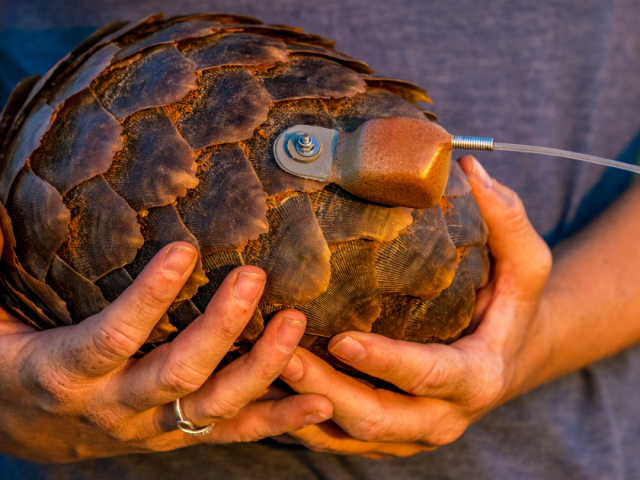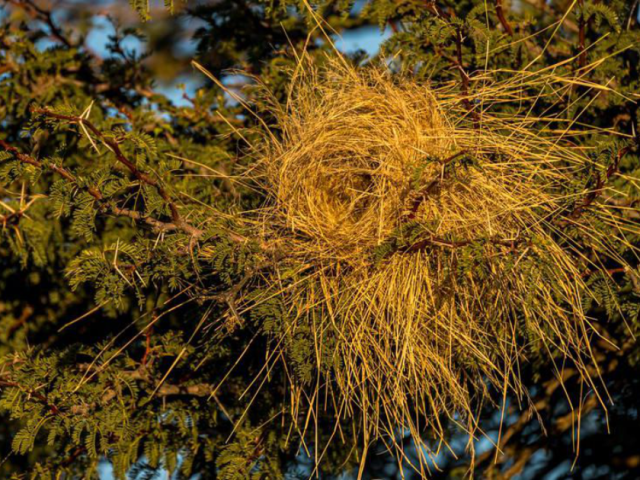Africa’s ‘orphan’ crops could help provide sustainable livelihoods, adequate nutrition and food security in the face of climate change and environmental degradation in Africa. So says Dr Alice Karanja, a postdoctoral research fellow at the Center for International Forestry Research (CIFOR) and World Agroforestry (ICRAF) in Kenya.
Karanja is one of the three women scientists vying for the Jennifer Ward Oppenheimer Research Grant which funds impactful research to provide solutions to some of Africa’s most pressing problems. She, and two other finalists, Assistant Prof Elizabeth le Roux and Dr Peta Brom were among 332 applications from 29 African countries who applied for the $150 000 grant.
The winner will be announced at the annual Oppenheimer Research Conference at the Midrand Randjesfontein Cricket Pavilion, on the 6th of October. In this webinar, hosted on Wednesday (August 31), the three early career scientists discuss their research objectives amid pressing environmental issues facing Africa.
Watch the webinar recording below or on the OGRC YouTube channel here .
Africa’s protected areas are becoming more isolated.
“Globally, less than 10% of protected areas are structurally connected to each other. And in Africa, this value is a lot lower – 0.5%,” says Elizabeth le Roux, a South African Assistant professor at Denmark’s University of Aarhus.
Rangelands – grasslands, shrublands, woodlands, wetlands, and deserts grazed by domestic livestock or wild animals – are also getting smaller and increasingly degraded with more of these landscapes turned to farmland, privatised or overgrazed.
Le Roux’s research project: “Cattle corridors: Aligning ecological process with local livelihoods”, will assess how rangelands can help to connect protected areas and support the movement of plants and animals, gene flow, and nutrient flows, which have potential benefits for carbon sequestration.
She argues that rangeland habitat is seldom prioritised by biologists for conservation yet has enormous potential in supporting biodiversity and the sustainability of protected areas. Her research aims to motivate support for maintaining rangelands and mitigating the threats they face because of the value these areas have for our protected areas.
Le Roux also stresses the importance of working with rural communities to gain a better understanding of the complexities of biodiversity loss and what people are dealing with on the ground.
Dr Alice Karanja agrees. She said it was only through working with communities that local solutions could be found and scaled up to address sustainability challenges in Africa.
She is concerned that not enough research is being done to reduce dependency on mass-produced crops which contribute significantly to biodiversity loss.
And she believes that orphan crops – those that aren’t traded internationally, but commonly eaten as part of local diets – could decrease dependency on nutritionally-limited, but widely cultivated crops such as maize, rice and wheat.
Her project “Mainstreaming Neglected and Underutilised Crop Species for Food and Livelihood Resilience in Sub-Saharan Africa” aims to assist women by helping them to provide more nutritious, diverse diets for their families, while providing them with a way to make a living that can weather setbacks.
She argues that cultivated or wild foraged crops have been left at the margins of research, investment and development. But with research, she believes the traditional crops (such as finger millet, groundnut, tet, yam and wild fruit) could improve nutrition, health and economic stability.
What’s more, wild and orphan crops can improve the resilience of rural communities to climate change and foster biodiversity. Karanja plans to develop seasonal growing calendars for people in Kenya and Zambia, empowering them to put nutritious food on the table all year round.
She also wants to help shorten supply chains of perishable foods to reduce losses and waste.
Peta Brom’s research project deals with the loss of green spaces in urban areas. Africa is urbanising faster than other continents, says Brom. This is due to high population growth and a wave of migration from the countryside to cities. The resulting loss of green spaces is a huge concern.
The University of Pretoria research fellow wants to ensure Africa’s urban areas begin to expand with nature in mind. This is at the heart of her research project, “Spatial patterns of urban nature in the Savanna Region”.
Likening urban warming to a “hot rock in the sun”, Brom said green spaces mitigate against climate change, including the warming and flooding you get in cities where buildings and roads cover most surfaces. Green spaces provide food and other harvests, promote biodiversity, foster a connection with nature and have been linked to better mental health. Yet, as Brom observes, urban ecological research is lacking in Africa.
Her research project will expand the work she is already doing with city officials in Pretoria in developing maps of green infrastructure benefits, assessing of the types of urbanism and the biodiversity in other cities, and illuminating the types of habitats cities create and how biodiversity is distributed in them.
She said city spatial development plans are typically revised every five to 10 years, so her research findings will be immediately useful in encouraging greener, better-connected city planning. She also argues that we cannot set targets for biodiversity and for conservation until we’ve understood the full extent of the conversation and pressures from all sides – political, environmental and economic.
The Jennifer Ward Oppenheimer Research Grant was established in 2019 to honour the late Mrs Jennifer Ward Oppenheimer and continue her extensive contribution to and passion for Africa, the environment, and science.
- Rio Button is a Roving Reporters correspondent, South African science communicator and conservation biologist.
- Tipping Points Episode 14: New voices for Africa – young environmentalists share their ideas - June 20, 2023
- Tipping point episode 8: ‘green growth’ economy demands widespread and fundamental change to how society is organised - October 20, 2022
- Worried about elephant numbers? Quit counting them. - September 30, 2022
Additional News
Pangolins are elusive and heavily trafficked. At Tswalu, researchers are working to uncover their secrets and aid conservation.
Declining Sparrow-Weavers may threaten other birds that rely on their old nests for shelter.





